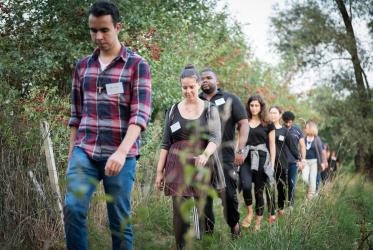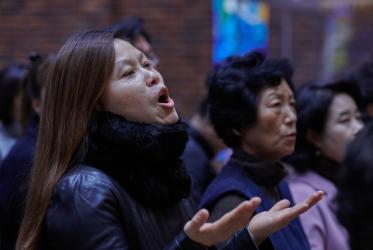The World Council of Churches (WCC) has just published two new Bible studies penned by authors from Colombia. Both focus on aspects of the WCC Pilgrimage of Justice and Peace.
The first, titled "Acting in Justice as Jesus Taught Us,” is based on Luke 19:1-10. Author María Eugenia León, a Colombian Mennonite and a political scientist, asks the in-depth question: "In our path as Christian women and men, what does it mean to be just?”
Part of the committee promoting the Ecumenical Group of Women Peacebuilders, León reflects that, in daily life, dealing with injustices and offenses is not an easy task. “The temptation to take revenge always arises in situations where oppression is a factor,” she writes.
The second Bible study, titled “Practicing Justice and Mercy,” is by Abilio Peña Buendía, a Colombian theologian and associate member of the Franciscan Congregation of Our Lady of Lourdes.
Based on Matthew 25:31-46, the text encourages readers to ask themselves whether they are followers of Jesus. “We are if we practice justice and acts of mercy, starting by contributing to the provision of the most basic needs of our poorer brothers and sisters, which include hunger, thirst, homelessness, insufficient clothing, and prison conditions,” writes Buendía. “We are followers of Jesus if we commit ourselves to distributive justice, and we are not if we remain indifferent to injustices.”
Both studies are available for free on the WCC website, and are accompanied by lists of additional resources.
Read all Bible studies on the Pilgrimage of Justice and Peace





